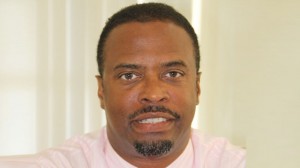 Minister of Foreign Affairs and Aviation and Deputy Premier of Nevis, the Honourable Mark Brantley, is heading a four-member delegation from the Federal Parliament of St. Kitts and Nevis at the PANCAP (Pan Caribbean Partnership against HIV/AIDS) Parliamentarians Forum in Jamaica from May 30-31, 2017, with the aim of addressing the challenges of HIV, and issues of stigma and discrimination.
Minister of Foreign Affairs and Aviation and Deputy Premier of Nevis, the Honourable Mark Brantley, is heading a four-member delegation from the Federal Parliament of St. Kitts and Nevis at the PANCAP (Pan Caribbean Partnership against HIV/AIDS) Parliamentarians Forum in Jamaica from May 30-31, 2017, with the aim of addressing the challenges of HIV, and issues of stigma and discrimination.
Other members of the delegation include the Honourable Wendy Phipps, Minister of State with Responsibility for Health; Leader of the Opposition, Dr. the Right Honourable Denzil Douglas; and Honourable Patrice Nisbett, Member of Parliament for Constituency 11 in Nevis.
In giving remarks at the opening ceremony of the two-day meeting, Minister Brantley, who was acting on behalf of Prime Minister of St. Kitts and Nevis, Dr. the Honourable Timothy Harris, CARICOM’s Lead Head for HIV, Health and Social Development (COHSOD), noted the importance of convening the Regional Parliamentarians’ Forum at this time.
“This Forum is critically important. It provides an opportunity for us to tackle some major issues, deal with some uncomfortable truths, and arrive at positive recommendations for moving forward with consensus. Most relevant to this Forum is that all Caribbean countries have ratified two major landmark UN Declarations in recent times: (1) The UN High Level Meeting Political Declaration on Fast Tracking the End of the AIDS Epidemic in June 2016; and (2) the 2030 Sustainable Development Goals (SDGs) in September 2015. Both declarations recommend addressing laws and regulations that are barriers to equality, peace, equity and social justice,” stated Minister Brantley.
The Foreign Minister also stated that in CARICOM’s move to make policy and pass legislation against stigma and discrimination, there are some six (6) key populations which must be considered, namely, men who have sex with men; commercial sex workers; transgender individuals; intravenous drug users; women and girls; and the disabled.
For all of these key stakeholders, Minister Brantley noted that the following key questions must be asked, and answered on the basis of consensus, in order to take our region forward in the recognition of human rights:
Are our justice systems effectively dealing with fostering reforms and modifications to break down the barriers for key populations to access health services without fear of stigma and discrimination? Have our judicial systems made adequate provision for coping with the special problems associated with cases involving violence against women, girls and children? What is the possibility that we could agree on some common guidelines for advancing the Sexual Offenses legislative agenda in the Caribbean? To what extent can we engage in discussions on the lessons learned from litigation involving the constitutional position of Lesbians Gays Bi-sexual and Transgender Individuals (LGBTIs)? Do parliamentarians have the will to engage in votes of conscience on the abolition of the buggery law? Are our Caribbean societies ready to embrace the necessary changes to permit our region to meet its international commitments?
The PANCAP Regional Parliamentarians’ Forum is being attended by most of the CARICOM Member States. The feature address at the opening of the Forum was ably delivered by Jamaica’s Minister of Justice, the Honourable Delroy Chuck. Addresses were also delivered by the following key stakeholder agencies: Dr Douglas Slater, Assistant Secretary General of CARICOM; Mr Winfield Tanis-Abbott, Secretary of the Caribbean Network of People Living With HIV and AIDS; Dr Elsie Laurence-Chounoune, UNDP Resident Director, Jamaica; Ms Maura Barry Doyle, USAID Mission Director, Jamaica; and Mr Derek Springer, Director of PANCAP.
The Forum is also intended to address the incongruities between legislation, age of consent, universal health coverage for persons living with HIV, and the role of civil society in behaviour change relating to HIV and the rights of same sex partners to inherit property, among other matters.
